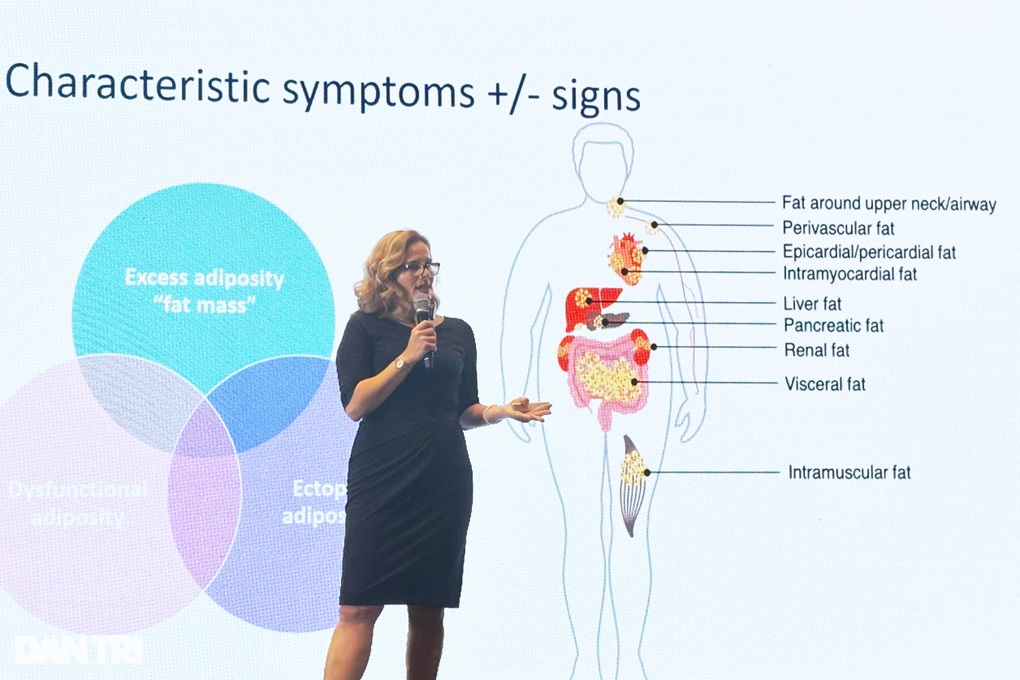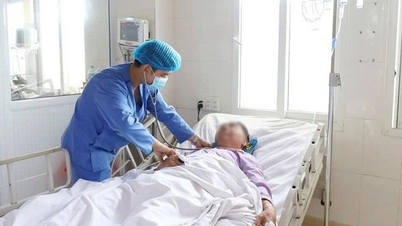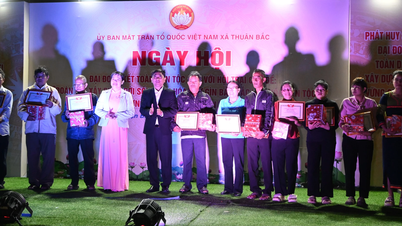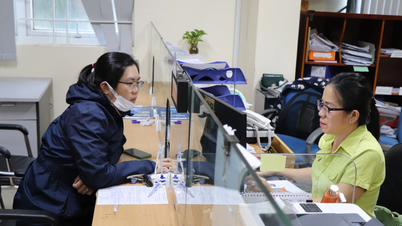At the announcement of a research report on awareness, attitudes, behaviors and barriers in obesity treatment in Vietnam, which recently took place in Ho Chi Minh City, experts said that Vietnam has a 38% increase in overweight and obesity rates, making it one of the countries with the fastest growing obesity rates in Southeast Asia.
According to the National Institute of Nutrition, the overweight and obesity rate among school-age children (5–19 years old) has doubled in a decade (from 8.5% in 2010 to 19% in 2020). Of which, the obesity rate in urban areas reached 26.8%, significantly higher than over 18% in rural areas.
Notably, the obesity rate among adolescents in Ho Chi Minh City has exceeded 50%, and in Hanoi it is over 41%.

The obesity rate among adolescents in Vietnam is increasing (Illustration photo: AI).
In late April, the ACTION-Vietnam study was published in the Journal of the Southeast Asian Endocrine Federation.
The study was conducted in the form of an anonymous online survey, with the participation of 1,000 obese people and 200 health professionals, providing important information for effective obesity management in Vietnam.
Associate Professor Nguyen Anh Tuan, Deputy Director of the Institute of Digestive Surgery, 108 Central Military Hospital, co-author of the ACTION-Vietnam study, shared that although obesity has been recognized as a chronic disease, in Vietnam, this awareness has not been fully reflected in research and treatment.
As a result, there is a clear gap in communication between doctors and patients, with 40% of doctors hesitant to mention the issue of weight, and nearly 50% of patients feeling embarrassed when asked. This psychological barrier is directly affecting the effectiveness of treatment.
People with obesity often face many challenges in the process of weight control, from trying many methods such as dieting, exercise to medical treatments.
However, many of them also face social stigma, which seriously affects their mental health, ability to form relationships, maintain employment and achieve success in life.

Dr. Georgia Rigas shares about how to manage obesity (Photo: Hoang Le).
Dr. Georgia Rigas, Lecturer at the University of New South Wales (Australia) - who has 25 years of clinical experience in obesity treatment - said that obesity management should focus on improving overall quality of life and minimizing health complications for patients.
Specifically, there is a need to change the perspective, moving from “weight loss” towards “health improvement”, by reducing comorbidities, restoring and enhancing physical function and improving overall quality of life.
Experts call on the health sector, media, policymakers and the public to view obesity as a complex chronic disease – a challenge that requires empathy, a scientific approach and a coordinated, comprehensive solution.
Source: https://dantri.com.vn/suc-khoe/can-benh-40-bac-si-ngai-de-cap-benh-nhan-thay-xau-ho-khi-duoc-hoi-20250621152143307.htm


![[Photo] Deep sea sand deposits, ancient wooden ship An Bang faces the risk of being buried again](https://vphoto.vietnam.vn/thumb/1200x675/vietnam/resource/IMAGE/2025/11/13/1763033175715_ndo_br_thuyen-1-jpg.webp)































































































![Dong Nai OCOP transition: [Article 3] Linking tourism with OCOP product consumption](https://vphoto.vietnam.vn/thumb/402x226/vietnam/resource/IMAGE/2025/11/10/1762739199309_1324-2740-7_n-162543_981.jpeg)







Comment (0)